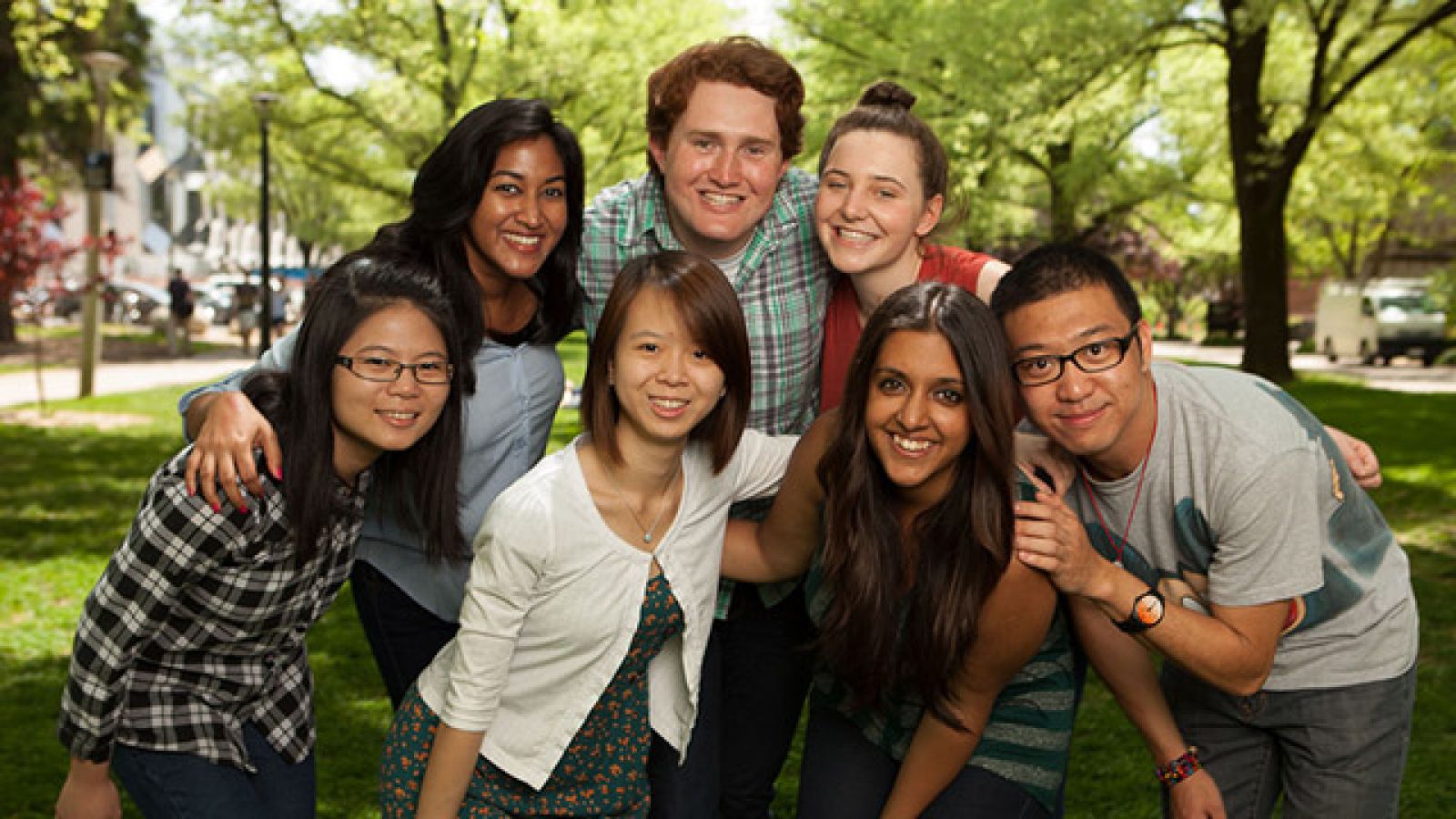Out of the classroom: student societies and the university experience

Going to university is about more than getting a good education. It’s a learning experience in other ways – you learn more about yourself, what future opportunities might be available to you, and what you might want to do with your life after university. It’s also a time when you make connections that will serve you well in the years ahead and friendships that might last a lifetime.
The clubs and societies at The Australian National University are an integral part of student life on campus. With around 150 to choose from, spanning all manner of interests, activities and cultures, you’re bound to find something that’s right for you.
Joining a club can also be a good way to find your feet if you’ve moved to Canberra from a different state or a different country. It offers a built-in network comprising other students from a similar background or with shared interests.
Wen Xin Tan moved to Canberra in mid-2013 from Kuala Lumpur, Malaysia. In 2014, she applied for, and won, the Presidency of the ANU Malaysian Students Organisation (MSO). She laughs when she says that adjusting to Canberra’s four seasons was perhaps the biggest challenge she faced with her move, after living with year-round heat and humidity in Malaysia. But she agrees that joining the MSO was helpful to overcoming another challenge – making friends in a city where she didn’t know anyone.
“I’ve definitely met a lot of Malaysian students. Through the MSO events, we’ve become good friends.”
It’s not just Malaysian students though, who comprise the society. The MSO has around 400 members, half of whom are Malaysian-born, whilst the other half consist of more than ten nationalities. Nevertheless, as Wen Xin says, for its Malay members, being part of the society’s activities can remind them of home.
The MSO organises a multitude of activities throughout the year. In 2015, the MSO got together every two to three weeks to play bubble soccer or badminton and gather for dinners or other festive celebrations. Wen Xin also spoke of the two major welcoming receptions that happen at the start of each semester, which take the theme of Hari Raya or the Malay New Year. She described the abundance of food at the event, the setting off of traditional firecrackers, and the distribution of ang bao filled with MSO sponsors’ vouchers.
“That brings them a welcome from home in a foreign country,” Wen Xin says.
There’s plenty for members to do in the ANU International Relations Society. Its 2015 president Simon Papagiorcopulo is majoring in International Relations and will be in the fifth year of his Bachelor of Arts/Law degree in 2016. He listed the range of events and services his society holds, which are social, academic or career-focused.
“Social events could be trivia or meeting up for a bbq or something like that,” he says. “Then we have our career-focused events; we run a careers fair every year. We invite DFAT and the Department of Defence, other NGOs and organisations that work around those departments and in international affairs. And that’s always great, we get 300-400 people down.”
Simon spoke about their networking events with lecturers. “Sometimes we might have an afternoon with lecturers and have drinks – something less formal, but still related to careers or international relations.”
Embassy visits are a highlight of the IR Society’s calendar.
“We visit anywhere between 5-10 embassies a year,” Simon says. “The embassies run the show there, they take us around and show us what it’s like to work at the US embassy, or the Japanese embassy or whichever it is.”
In 2015 the society visited both those countries’ embassies along with the embassies for France, Brazil and Singapore.
“We were lucky enough to meet the US Ambassador, coincidentally, while we were walking around, which was cool,” Simon remembers. “Really nice guy. He said to throw any questions you have at me, a few hard questions about Russia, China and that sort of thing. It was really good, took it all in his stride.”
There is a strong practical element to being a member of the IR Society.
“A lot of our members or people who study International Relations want to work in the field. A lot of them want to be diplomats or are aspiring Ambassadors. So it gives you an insight into what that life is going to be like.”
As president, Simon helped set the direction for the society’s academic events, which involved panel discussions with academics, public lectures and debates.
“We had this year an Iran nuclear event, a Putin in Ukraine event; those were my personal topics that I thought would be really good,” Simon says. “And then we had others that were led by members of the Executive.”
“We have such great access to academics and people in the know, it’s almost like why wouldn’t you?”
Simon reflects on how the IR Society gives students the opportunity to talk about their interests outside of the classroom.
“Walking around the US embassy, having a chat after one of the panel discussions with a glass of wine or bottle of beer, it gives you that informal environment to pursue your interests, to make friends, and meet other people who are like-minded,” Simon says.
“That’s probably the most important part of the society, just acting as a forum for people to meet and interact.”
Interested in studying International Relations? You could do a Bachelor of International Relations or study it as one of the 50 majors available in the Bachelor of Arts, both of which could be combined as a Flexible Double Degree.
View the full list of ANU Clubs and Societies on the ANU Students Association webpage.